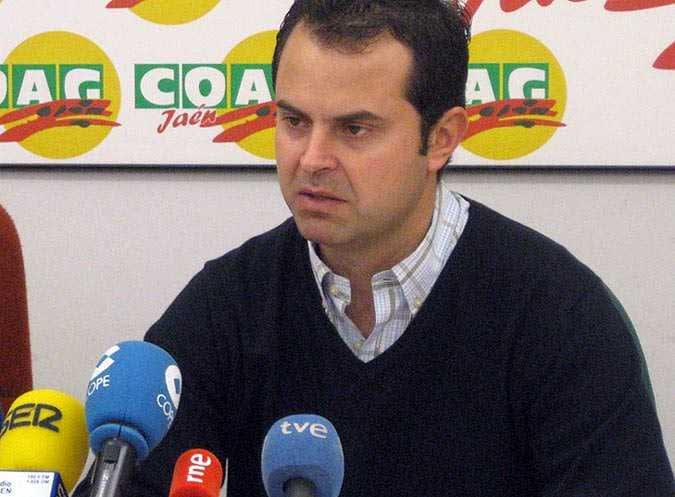
COAG Jaén General Secretary Juan Luis Ávila
Alleged price manipulation by olive oil distributors should be probed by Spain’s competition watchdog, one of the country’s main farm unions says.
COAG said its lawyers were preparing data to present to the National Competition Commission (CNC) next week to back the call for an inquiry.
COAG-Jaén General Secretary Juan Luis Ávila Castro told Olive Oil Times the fact that ex-mill prices were falling amid Spain’s worst harvest in 20 years and very low stocks, was telling.
“The current situation doesn’t reflect free operation of the law of supply and demand, it arouses suspicion that the few, big companies dominating distribution may be jointly agreeing not to buy at certain times so as to push down the wholesale price — and that’s illegal,” he claimed.
“As they expect the next harvest to be a plentiful one — something we doubt due to the unseasonable snowfall of late — and they know farmers are at their limit, we think they’ll try to hold off buying again here until later this month or June, by when the cooperatives will be ready to practically give away their oil.”
The supply of cheaper olive oil from Morocco, Algeria and Greece was now drying up, Ávila said.
“What we can do is offer clear data to the CNC, whose role it is to investigate whether there may be any strategy shared by companies to act counter to the law of supply and demand,” he said.
According to Spain’s POOLred price observatory, the average ex-mill price for olive oil in Spain for the last week of April was €2.69 a kilo, down from €2.83 in the last week of March and €2.86 at the end of January but still well above €1.67 early last July when prices started to recover in Spain after several years at rock bottom.
Farmers struggling
Ávila said that after the previous three seasons with farmgate prices below the cost of production, farmers had no savings left and were now paying more for fertilizer, fuel and electricity.
“The price of olive oil farms has halved and there are lots on the market — many people are in financial ruin,” he said.
Also, many farmers had stopped paying their annual contributions averaging about €600/ha for communal irrigation schemes. “Which presumably means their water will be cut off and they’ll end up in a very difficult situation given their trees are used to irrigation,” he said.








